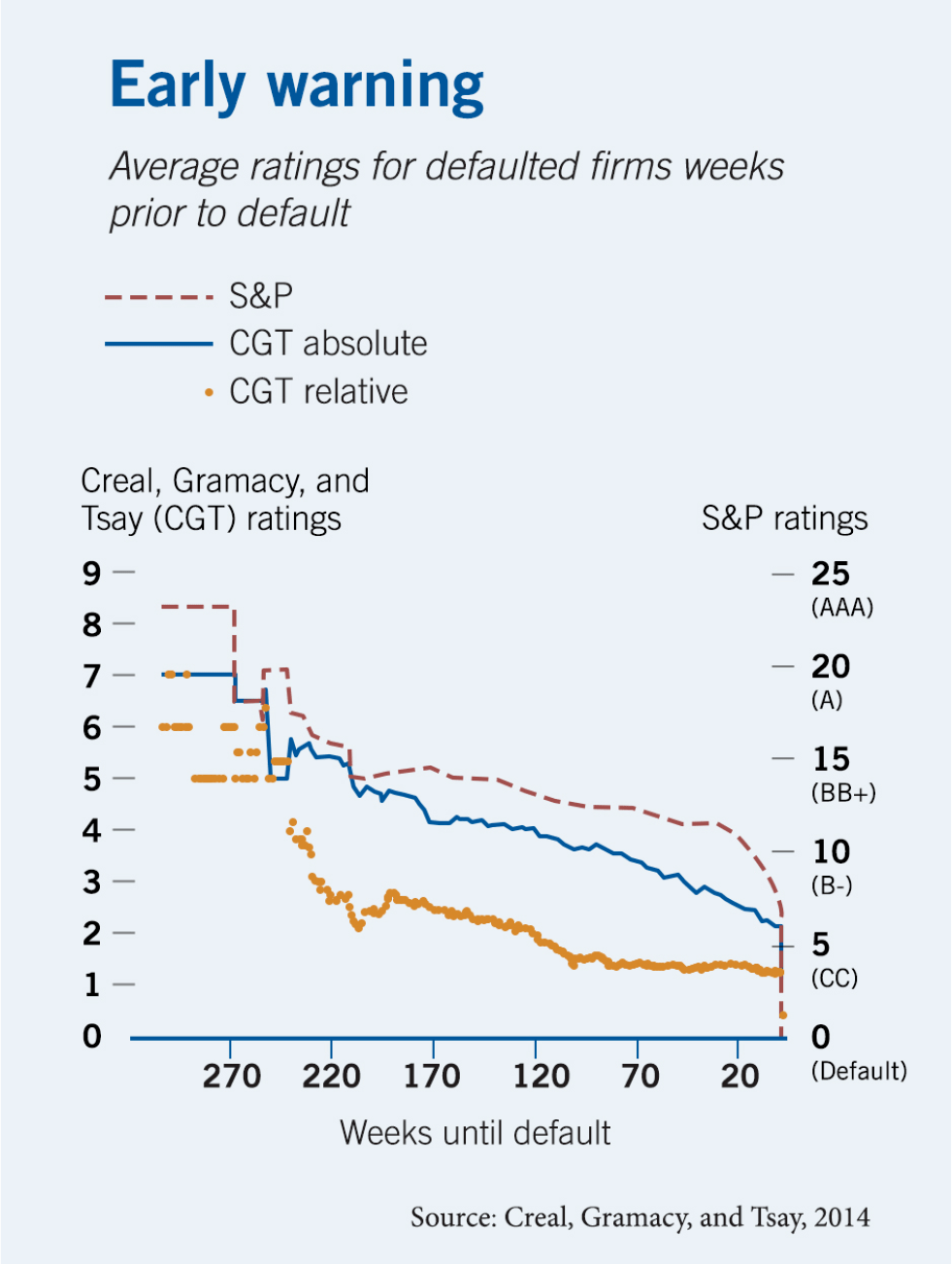
US Bank Regulators Could Have Averted $9 Billion in Losses
An analysis of the 2023 bank failures assesses their hits and misses.
US Bank Regulators Could Have Averted $9 Billion in LossesHow to spot risky investments
Credit ratings based on credit-default swaps can provide transparent and effective signals of default risk.

For firms that defaulted, relative ratings provided the clearest indication of trouble ahead.
Drew D. Creal, Robert B. Gramacy, and Ruey S. Tsay, “Market-Based Credit Ratings,” Journal of Business & Economic Statistics, July 2014. Chart reprinted with permission from Taylor & Francis. Copyright 2014.

An analysis of the 2023 bank failures assesses their hits and misses.
US Bank Regulators Could Have Averted $9 Billion in Losses
Recognize the stressors inherent in business models.
Four Ways to Avoid the Next Silicon Valley Bank
Their insights changed the modern understanding of banks.
What the Latest Nobel Winners Taught UsYour Privacy
We want to demonstrate our commitment to your privacy. Please review Chicago Booth's privacy notice, which provides information explaining how and why we collect particular information when you visit our website.